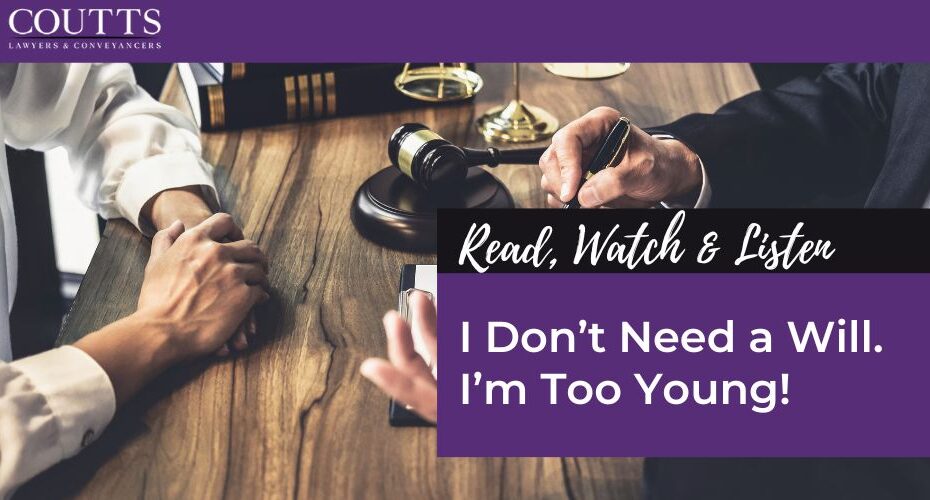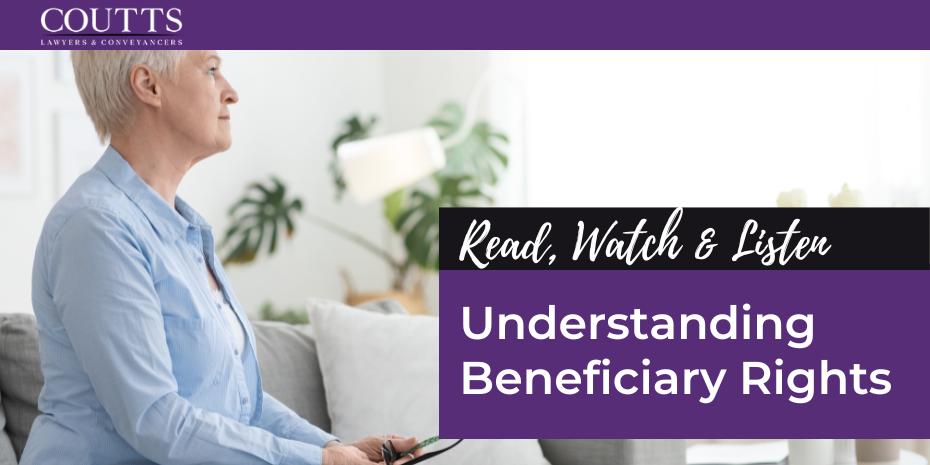Far too often estate planning is something little spoken of until retirement is approaching, or a life-changing situation has occurred – such as the birth of a child, separation or the passing of someone you know. We all know that Wills are a crucial document to ensure our wishes are carried out the way we had intended and by the person we hope to carry them out. The only way of ensuring that both things happen is to make sure you have a well written Will.
KEY TAKEOUTS
Do you know what would happen to your assets if you passed away without a valid Will? The law in New South Wales says that the “rules of intestacy” will apply. The rules of intestacy determine who will benefit from your estate in a priority order, beginning with your spouse, children, parents, siblings and so on. These rules may mean that the person you had hoped would receive your assets may never receive a benefit at all.
Much like other areas of law, your unique set of circumstances will influence the ‘why’, and therefore the ‘when’ of turning your mind to writing a Will. In reality, you (or your children/grandchildren) are only ‘too young’ to write a Will if you are a minor! A ‘minor’, being under the age of 18 years. Though, as more people tend to leave the nest at an older age, financial independence is often coming about later in life. Therefore, that first life changing moment that may ignite the idea of writing a Will often occurs a little later and sometimes far beyond classification as an ‘adult’.
We often notice that an unmarried young person may not worry much for discussions of estate planning, opting instead for their assets to be distributed to their relatives in an order that has been pre-determined by the law in New South Wales, called the “rules of intestacy”. Under the rules of intestacy, there is a priority order of relatives who will be entitled to your estate, and you must exhaust each category of relative before moving on to the next. Where the young person doesn’t have any spouse or child, then the assets of their estate would first go to their parents. But if the unmarried person is in a relationship with someone else, or has children, then the priority order may change. At the end of the day, the beneficiaries of the estate would depend on all of the circumstances and relationships at play when the unmarried person passed away, and could be anyone from their parents, siblings, grandparents, aunts, uncles, cousins. On the other hand, the young person may wish to benefit their boyfriend or girlfriend, longtime friend or even a charity they support, but do not realise that without a valid Will there is little chance of it happening.
We also notice that young people often think that their estate is not substantial enough to worry about estate planning or making a Will. They may think, “but I only have my car and some money in the bank?”. Quite often young people forget about the non-tangible assets they may have, like their unpaid employee entitlements (annual leave and long-service leave), their superannuation account balance and any insurance benefits that would be paid to their estate. These non-tangible assets could certainly mean that the young person’s estate is much bigger than they originally thought.
So, you think you’re too young for a Will? But do you have assets that you care about and hope your family or friends will receive if you were to pass away?
If you take anything from this article, we hope that you turn your mind to consider both your tangible and non-tangible assets, and the importance of a well written Will to ensure that all your assets will pass to the persons you wish to benefit. Just because you might be 22 years old, with a bank account and your car, does not mean that your assets aren’t important or significant.
Think of your Will as a well written letter which gifts a piece of your life to those you love once you are no longer there with them – finally dusted with legal formality to give you and your loved ones peace of mind that your wishes will be met.
For further information please don’t hesitate to contact:
Contact our Campbelltown Lawyers today.
This blog is merely general and non specific information on the subject matter and is not and should not be considered or relied on as legal advice. Coutts is not responsible for any cost, expense, loss or liability whatsoever in relation to this blog, including all or any reliance on this blog or use or application of this blog by you.



